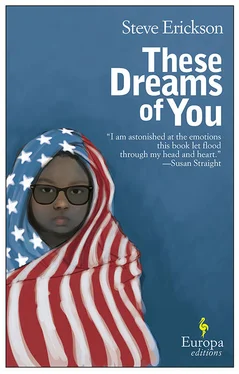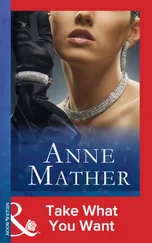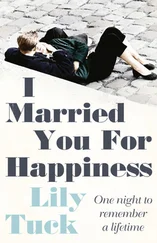“Viv is a resilient woman,” says Brown.
“Will you stop saying that?” Zan hears his voice rise. “I know she’s resilient. I also know she’s driven about this thing with Sheba’s mother, that this whole business has become a moral crisis for her—”
“She can hardly hold herself responsible—”
“I know that. . ”
“Right. Ronnie Joe. . ”
“Ronnie Jack Flowers. . I know all this. Doesn’t matter what perspective you or I hold on it, what matters is how Viv feels about it and whatever lengths she’s compelled to go to in order to find or help someone who may or may not be Sheba’s mother — and no sooner does Viv go looking for Sheba’s mother and suddenly become incommunicado than Molly shows up.”
The other man frowns. “Not sure I follow that last bit.”
“Never mind,” Zan shakes his head. He doesn’t want to explain the crazy thing that’s been in his head since Molly appeared. “What’s important at this point is finding Viv.”
“Of course.”
“Until then, we’re stuck in London,” and we have no money and we’re about to lose our house but he doesn’t want to explain that either.
Brown replies, “Let me see who I can talk to.”
First useful thing you’ve said, thinks Zan.
That night as both kids sleep, Zan surrenders to his insomnia and turns on the TV. The sound is down so low he can’t be sure, but back home the BBC seems to find the new president somber before his time. It’s a strange thing to witness from five thousand miles away, but Zan suspects that many people, from the woman on the plane to his anarchist friend in Texas, will take some satisfaction in this. For his part Zan takes solace in the same presidential ego that others consider so intolerable; the new president hasn’t merely a political sense of himself but an historic one. Mere elections are small potatoes for him. He’s running for history. He’s running for greatness, and in the eyes of history, whether he’s a megalomaniac, as is entirely possible, depends only and entirely on whether he succeeds.
In his lifetime, Zan doesn’t remember a president’s very identity being such a point of political contention. He doesn’t remember large segments of the public twenty-five years ago debating whether the president at that time secretly had been born in Ireland. The new president’s race is part of his political identity; the two can’t be extricated; and if, as some indicate, his racial identity is a creation, if he taught himself — even for purely political purposes — how to be black, how to talk or walk black, only to later teach himself how to be a little whiter, does that make his identity more a creation than anyone else’s? Doesn’t everyone choose aspects of his or her identity, or is race the rubicon of authenticity?
Zan began pondering race when he was younger only because he began pondering his country, and knew that it wasn’t possible to understand his country without pondering slavery and it wasn’t possible to understand slavery without pondering race. He considered how his countrymen from Africa were the only ones who didn’t choose to be there; Africans were compelled to come and only once they were made to come did they choose to stay. Did that make them, then, the true owners of the country’s great idea, by virtue of having accepted the country in the face of so many reasons not to? If the country is more an idea than a place then are those who were so compelled its true occupants, given how the country’s promise to them was broken before it was offered?
When Brown calls, the expeditious response that should be reassuring seems suspicious in a way that even Zan knows is unreasonable, his mind reverberating with half-baked conspiracy theories even his paranoia finds far-fetched. “Look here,” Brown says, “I got you a meeting tomorrow with the Ethiopian ambassador in London. If anyone can sort this out, I feel certain he can,” and to Zan the “if” and “certain” seem conspicuously at odds with each other.
Only later will Zan consider how fateful is the turn of the following day when Parker insists on accompanying his father to the embassy rather than remain with Molly and Sheba. “I want to go with you,” he declares in his newly adolescent way that brooks no argument.
“Why does Parker get to go?” Sheba asks, but Zan is struck by how perfunctory her protest is. “I promise,” he answers, “you’ll prefer being with Molly.”
“You’re not going, buttmunch,” says Parker.
“Knock it off,” Zan says to his son, but his daughter already has conceded the point more readily than she’s conceded anything, and taken hold of the nanny’s hand.
After the incident at Hampton Court and the maze, Molly’s manner has vacillated between warmth and remove, her speech to Zan more terse as she becomes with Sheba more expansive. On this unseasonably warm morning she seems positively frail; having shed her voluptuousness, she looks as though she’s lost ten pounds, and her skin pales to the color of sand and then ash. Since Zan and the children first saw her standing on the street outside the pub at Leicester Square watching them back, she’s been diminishing. In her approach up the street, she’s exhausted.
Most notably the music from her that filled the hotel room the first day fades, phasing in and out in wails and trebles. “Are you all right?” Zan says.
“Yes,” she says. She rubs her finger against Sheba’s cheek.
“Parker and I are going to the Ethiopian embassy. I imagine you know where it is.”
“Why would I know where it is?” says the woman, and Zan thinks to himself, Did I say something so offensive? “It’s on Kensington Road,” he answers, “across from Hyde Park, a little west of Knightsbridge. I don’t know what’s around there to do with Sheba but we can meet in the park afterward or if you want to take her on a walk, maybe we can eat something or get a soda for the kids at the pub where we first saw you. Parker will be hungry.”
Molly says, “What pub?”
“The one off Leicester Square that—”
“I don’t know it,” she says.
He says, “You do.” Did they ever actually talk about that afternoon they saw each other there, or is this a conversation that took place in his head, so vivid yet never in fact spoken? “You’ve been there,” he persists, “well, maybe not inside, but outside.”
“I don’t know it,” she says firmly.
The tone is becoming antagonistic. “Let’s meet then,” Zan says, “across the street at the park.”
“It’s a big park,” she says.
“The embassy is at Kensington and Exhibition Road.”
Actually it’s on a small sidestreet called Prince’s Gate. Zan has imagined a consulate out of the movies, a compound with a yard and guards everywhere; but the Ethiopian embassy doesn’t even occupy the whole building, rather the middle floors where there’s a single security entrance that’s more intent on not seeming rude than secure.
The display case in the lobby features not the usual artifacts but different kinds of coffee. Parker hoped to see weapons, shrunken heads, the poisoned tips of pygmies’ arrows. “They don’t have pygmies and shrunken heads in Ethiopia,” says Zan.
Zan expects an ambassador out of the movies too, formal and in a coat and tie, with cufflinks gleaming so bright Zan can see their glow from beneath the coat sleeves. Rather the ambassador wears a cardigan, with sleeves pushed up his arms. If this were L.A., thinks Zan, he’d be in a t-shirt.
Читать дальше











